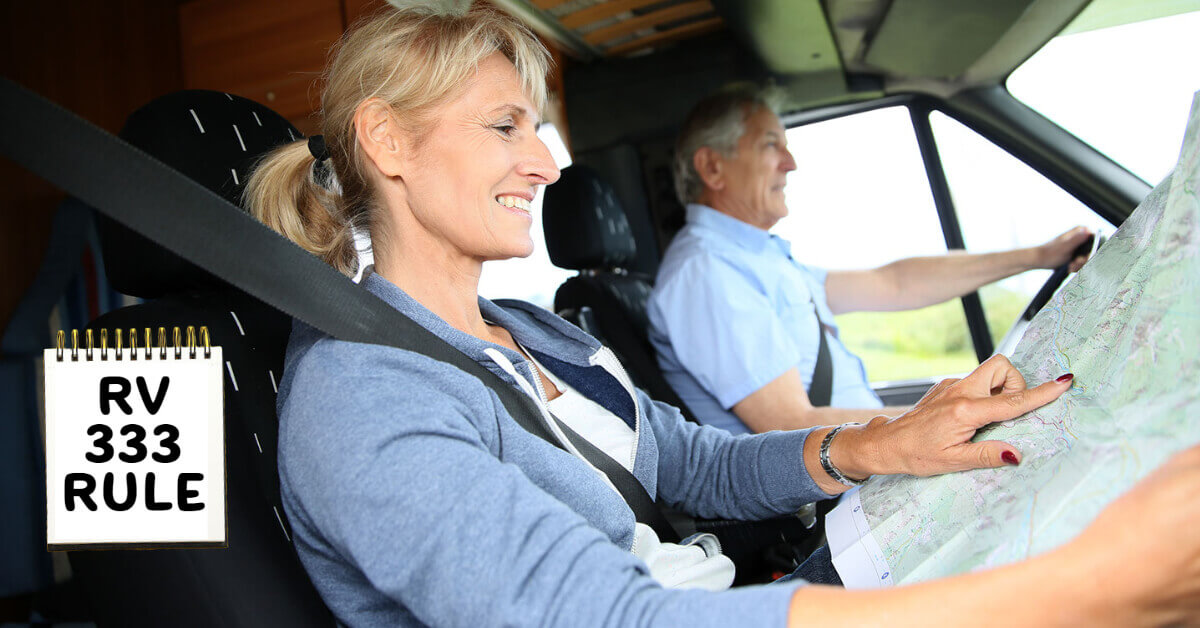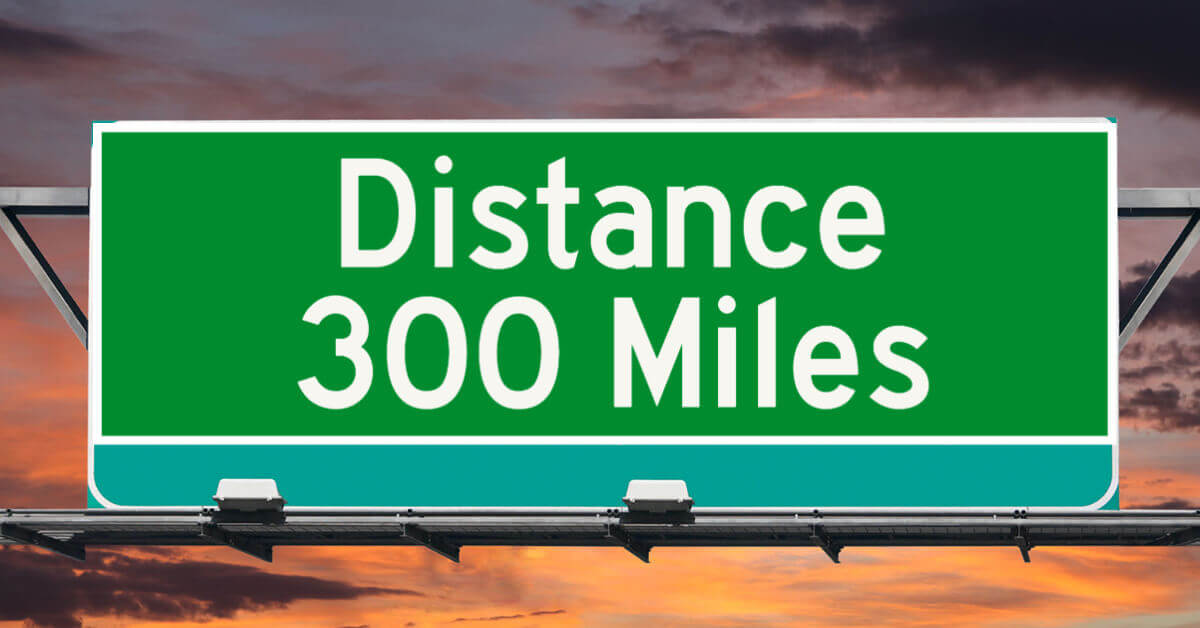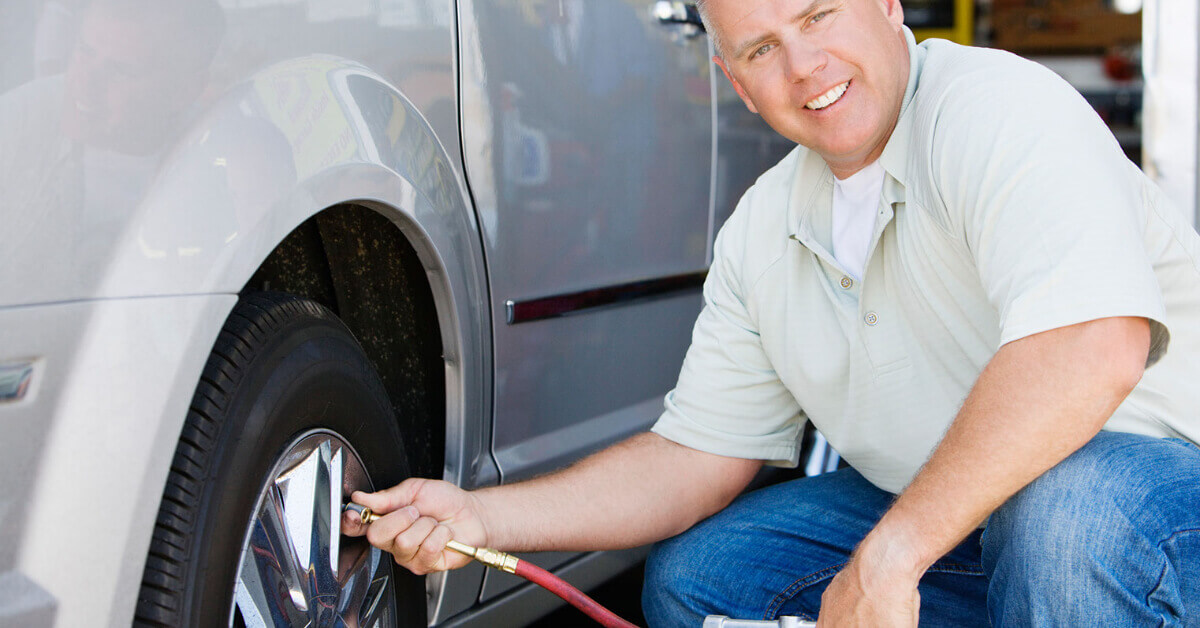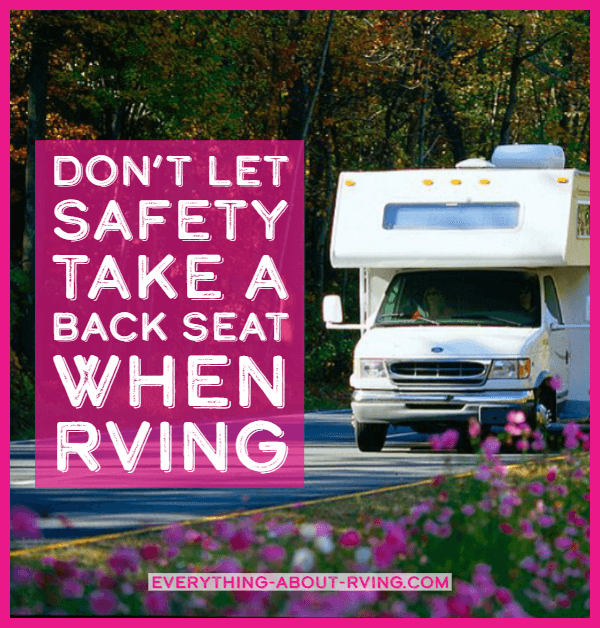- Home Page
- RVing Tips & Tricks
- Rv 333 Rule
The RV 333 Rule:
A Life Saver for RVers
What you need to know about the RV 333 rule, what it is, why it's important, and how to follow it.
If you're interested in RVing or have been a part of the RV community, you might have heard of the RV 333 rule. It's a widely popular rule of thumb that is followed by many RVers to help ensure they're staying safe and being courteous while on the road. In this article, we'll dive into everything you need to know about this rule, including what it is, why it's important, and how to follow it.
1. What is the RV 333 rule?
The RV 333 rule is a set of guidelines for RVers to follow while on the road. It consists of three parts:
- Drive no more than 300 miles in a day.
- Start driving no earlier than 3 hours after sunrise and stop driving no later than 3 hours before sunset.
- Stay at least 30 feet away from other RVs while parked at a campground or other RV park.
These guidelines are designed to help RVers stay safe and courteous while traveling, and they're widely followed by the RV community.
2. Why is the RV 333 rule important?
The RV 333 rule is important for a few reasons. First, it helps ensure that RVers are not pushing themselves too hard while on the road. Driving long distances or for extended periods of time can be exhausting and can increase the risk of accidents.
Second, following the RV 333 rule helps RVers be more courteous to others on the road and at campgrounds. By limiting the amount of time spent driving and staying a safe distance away from other RVs, RVers can help reduce noise levels and congestion, which can make for a more enjoyable experience for everyone.
3. How to follow the RV 333 rule
Following the RV 333 rule is fairly simple. Here's a breakdown of each part of the rule and how to follow it:
3.1 Speed
There is no specific speed limit associated with the RV 333 rule, but it's important to drive at a safe speed that's appropriate for the conditions you're driving in. This might mean slowing down on winding or narrow roads, or in areas with heavy traffic.
3.2 Hours
To follow the "hours" part of the RV 333 rule, simply start driving no earlier than 3 hours after sunrise and stop driving no later than 3 hours before sunset. This will help ensure that you're not driving in low-light conditions, which can be dangerous.
3.3 Distance
To follow the "distance" part of the RV 333 rule, simply limit your driving to no more than 300 miles in a day. This will help ensure that you're not pushing yourself too hard and that you have plenty of time to rest and enjoy your trip.
4. Exceptions to the RV 333 rule
While the RV 333 rule is widely followed, there are some exceptions to it. For example, While the RV 333 rule is widely followed, there are some exceptions to it. For example, if you're on a tight schedule or need to get to a certain destination by a specific time, you may need to drive for longer periods of time or cover more than 300 miles in a day.
However, it's important to remember that safety should always be the top priority when driving an RV. If you find yourself getting tired or overwhelmed while on the road, it's important to take a break and rest before continuing your journey.
5. Tips for safe RV travel
In addition to following the RV 333 rule, there are a few other things you can do to ensure that your RV travels are safe and enjoyable. Here are some tips:
5.1 Plan ahead
Before you hit the road, make sure you have a plan in place for where you'll be staying each night and how you'll get there. This will help ensure that you're not driving for extended periods of time or getting lost along the way.
5.2 Take breaks
Driving an RV can be tiring, so it's important to take breaks and rest when needed. Try to take a break every few hours to stretch your legs, use the restroom, and grab a snack.
5.3 Maintain your RV
Regular maintenance is key to ensuring that your RV is safe and reliable. Make sure you're keeping up with routine maintenance tasks like oil changes and tire rotations, and address any issues as soon as they arise.
5.4 Be aware of your surroundings
When driving an RV, it's important to be aware of your surroundings at all times. This includes checking your mirrors frequently, paying attention to road signs and traffic signals, and being mindful of other drivers and pedestrians on the road.
6. The future of the RV 333 rule
The RV 333 rule has been around for many years and is likely to continue to be a popular guideline for RVers to follow. However, as technology advances and RVs become more advanced, there may be changes to the rule or new guidelines put in place to ensure safe and courteous RV travel.
7. Conclusion
The RV 333 rule is a simple but effective set of guidelines for RVers to follow while on the road. By limiting the amount of time spent driving, staying a safe distance away from other RVs, and being mindful of speed and conditions, RVers can help ensure a safe and enjoyable experience for everyone.
8. FAQs
Can I drive more than 300 miles in a day if I need to get to a certain destination quickly?
Can I drive more than 300 miles in a day if I need to get to a certain destination quickly?
While it's technically possible to drive more than 300 miles in a day, it's generally not recommended. Safety should always be the top priority when driving an RV, so it's important to take breaks and rest when needed.
Is there a specific speed limit associated with the RV 333 rule?
Is there a specific speed limit associated with the RV 333 rule?
No, there is no specific speed limit associated with the RV 333 rule. However, it's important to drive at a safe speed that's appropriate for the conditions you're driving in.
What should I do if I find myself getting tired while driving an RV?
What should I do if I find myself getting tired while driving an RV?
If you find yourself getting tired or overwhelmed while driving an RV, it's important to take a break and rest before continuing your journey. Pull over at a rest stop or RV park and take a nap, or simply stretch your legs and grab a snack.
Can I still follow the RV 333 rule if I'm traveling with a group of other RVs?
Can I still follow the RV 333 rule if I'm traveling with a group of other RVs?
Yes, it's still possible to follow the RV 333 rule if you're traveling with a group of other RVs. Simply plan your route and stops ahead of time, and try to stay together as much as possible while on the road.







Comments
Do you have a comment on this topic? You can leave your comment in the box below.